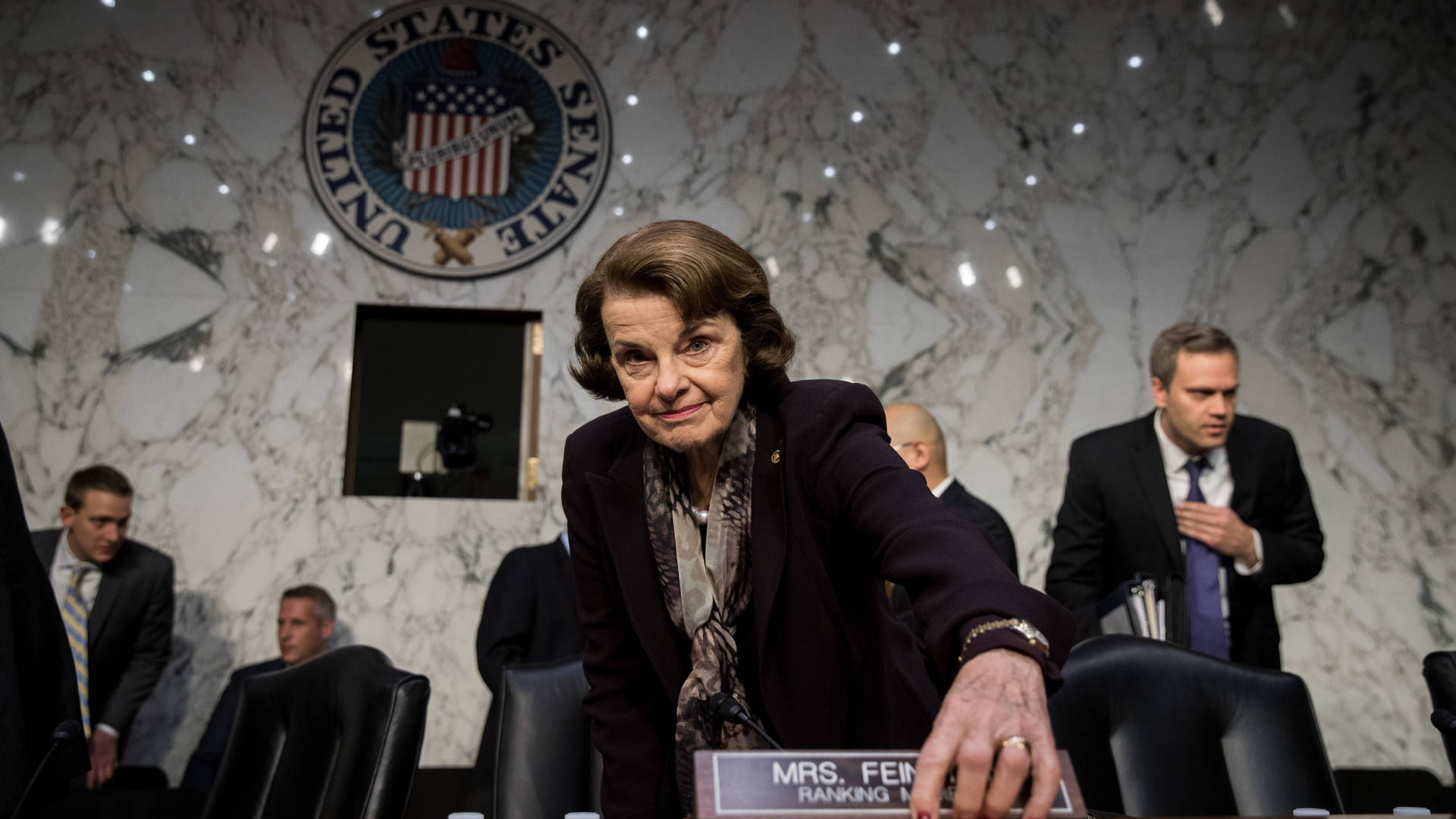And their chronological age doesn't really tell you much.
"Rather than focus on someone's age, we should be focusing on their biological age, which is the age of their cells, tissues and organs," Ailshire says.
That's not the sort of information that voters have access to. What they do know about Feinstein is that she received a pacemaker last year, but missed only a single day of work. That work includes serving as the top Democrat on the Judiciary Committee, as well as having senior status on Appropriations and the Senate Select Committee on Intelligence.
Throughout her career, Californians have known Feinstein as a cautious, middle-of-the road politician. That served her well when she was first elected to the Senate in 1992. The California electorate was also more moderate then. But Meyerson says California leans more to the left these days.
"So in many ways, I think, she still positions herself to the right of certainly where California Democrats are, and in many ways, of where California is."
But it's never been Feinstein's way to be a liberal flame-thrower. Instead, as she told an audience in San Francisco last year, what's important is knowing how to get things done.
"You've got to be able to compromise," she said. "And compromise, ladies and gentlemen, isn't a dirty word. Compromise is what moves this government forward."
Feinstein has a major primary challenger from her left. He's Kevin de León, 51, leader of the California State Senate. And since California has a nonpartisan, top-two primary, he's likely to be her opponent in November as well.
De León has blasted Feinstein for being too conciliatory toward President Trump and too slow to stand up for young people on DACA, the program for some undocumented immigrants who were brought to this country as children. For the record, Feinstein voted against the January budget resolution to reopen the government because it lacked an extension for DACA.
De León's campaign declined to be interviewed for a story on Feinstein's age.
He's been endorsed by the progressive political action committee, Democracy for America, which claims around 300,000 members in California. Communications Director Neil Sroka says what his organization wanted to know was, "Who's going to be best equipped to lead the resistance to Donald Trump and set a path forward for what an inclusive, populist vision for this country looks like?"
And for his organization, that wasn't Feinstein. Her age isn't a problem, but her long tenure in the Senate is.
"We're going to need more [progressive] candidates moving up the ranks," Sroka says. "We can't do that if the same old people are running for the same old offices over and over again."
Feinstein is hardly the first candidate whose age has become an issue. But few have been damaged by it. In 1984, President Ronald Reagan famously teased his younger opponent, Minnesota Sen. Walter Mondale, that he would not criticize him for his youth and inexperience. And just two years ago, when Arizona Sen. John McCain's primary opponent said he was too old to be running for re-election at the age of 80, her comments were called desperate, nasty and sick by the media; she lost decisively.
But Dianne Feinstein may be more vulnerable. While polls show her ahead by double digits, one survey showed her support dropping several points when voters were told her age.
Bill Carrick, Feinstein's longtime political strategist, says there have been older politicians going back decades "and I never heard all this racket." Then again, he notes, they were all men.
"We now are getting to the point where there are senior senators who are female," which suggests, says Carrick, that the concerns expressed about Feinstein's age represent "quite a double standard."
Gerontologist Ailshire says that if there's going to be a double standard, the science says it should be the other way round.
"Women have a survival advantage over men," she says. "Scientists have found that men have higher epigenetic aging rates, meaning their cells and tissues are older, even when they're the same chronological age [as] women."
Whether age should be an election issue will ultimately be settled by the voters. But those voters themselves are also aging. A dozen years from now, one-fifth of the U.S. population will be 65 years old or more.
Copyright 2018 NPR. To see more, visit http://www.npr.org/.
9(MDAxOTAwOTE4MDEyMTkxMDAzNjczZDljZA004))

9(MDAxOTAwOTE4MDEyMTkxMDAzNjczZDljZA004))
